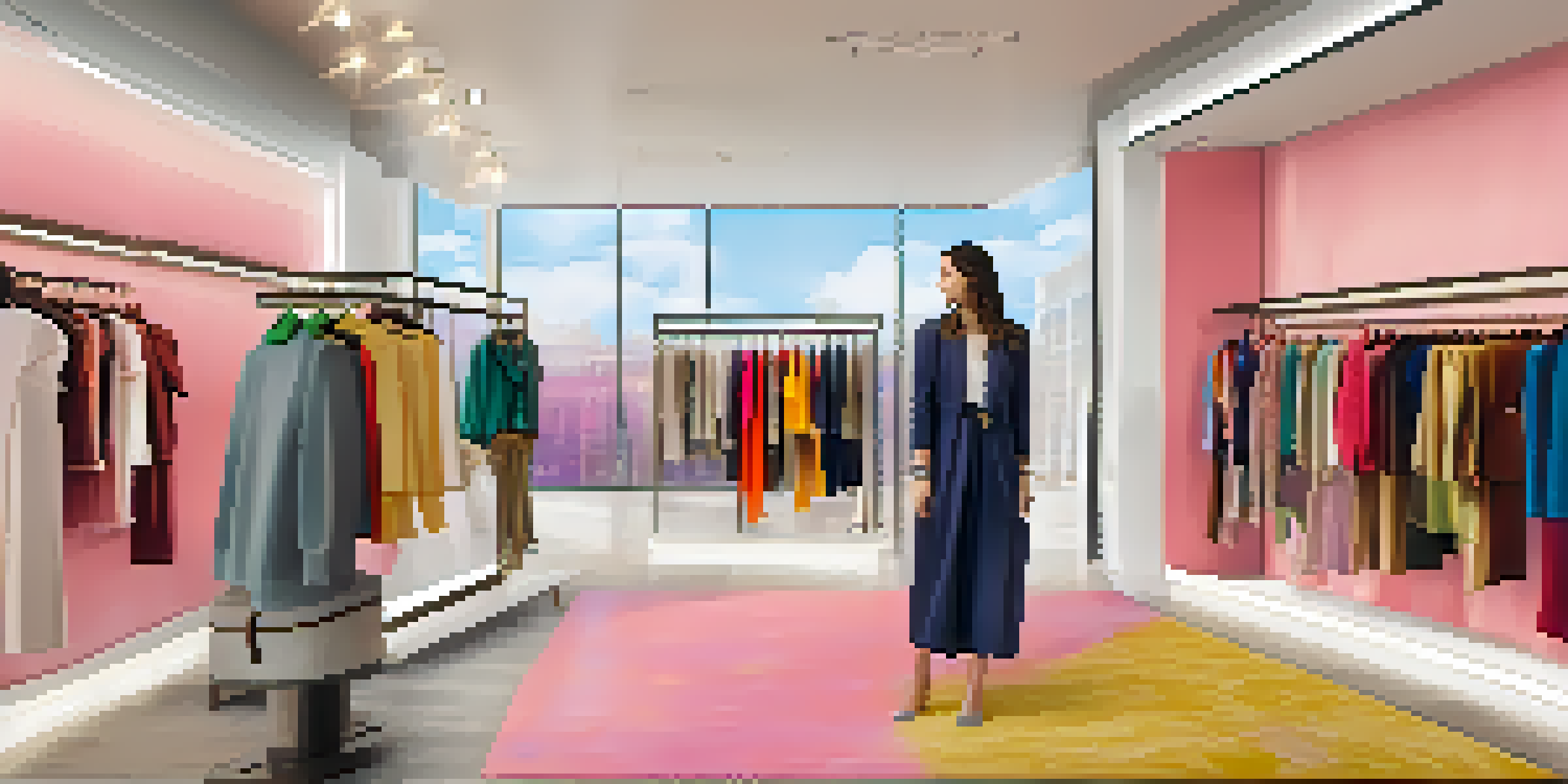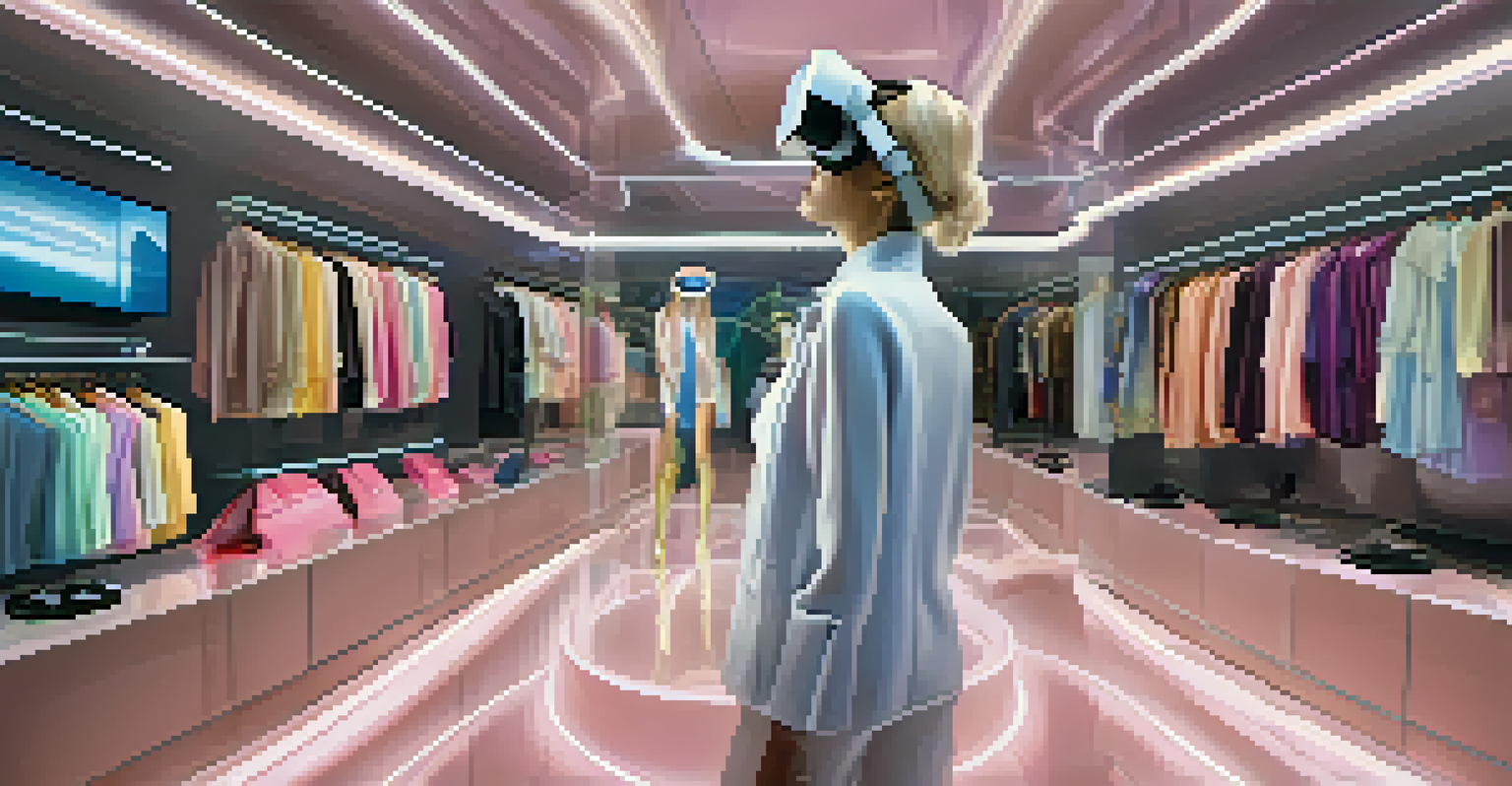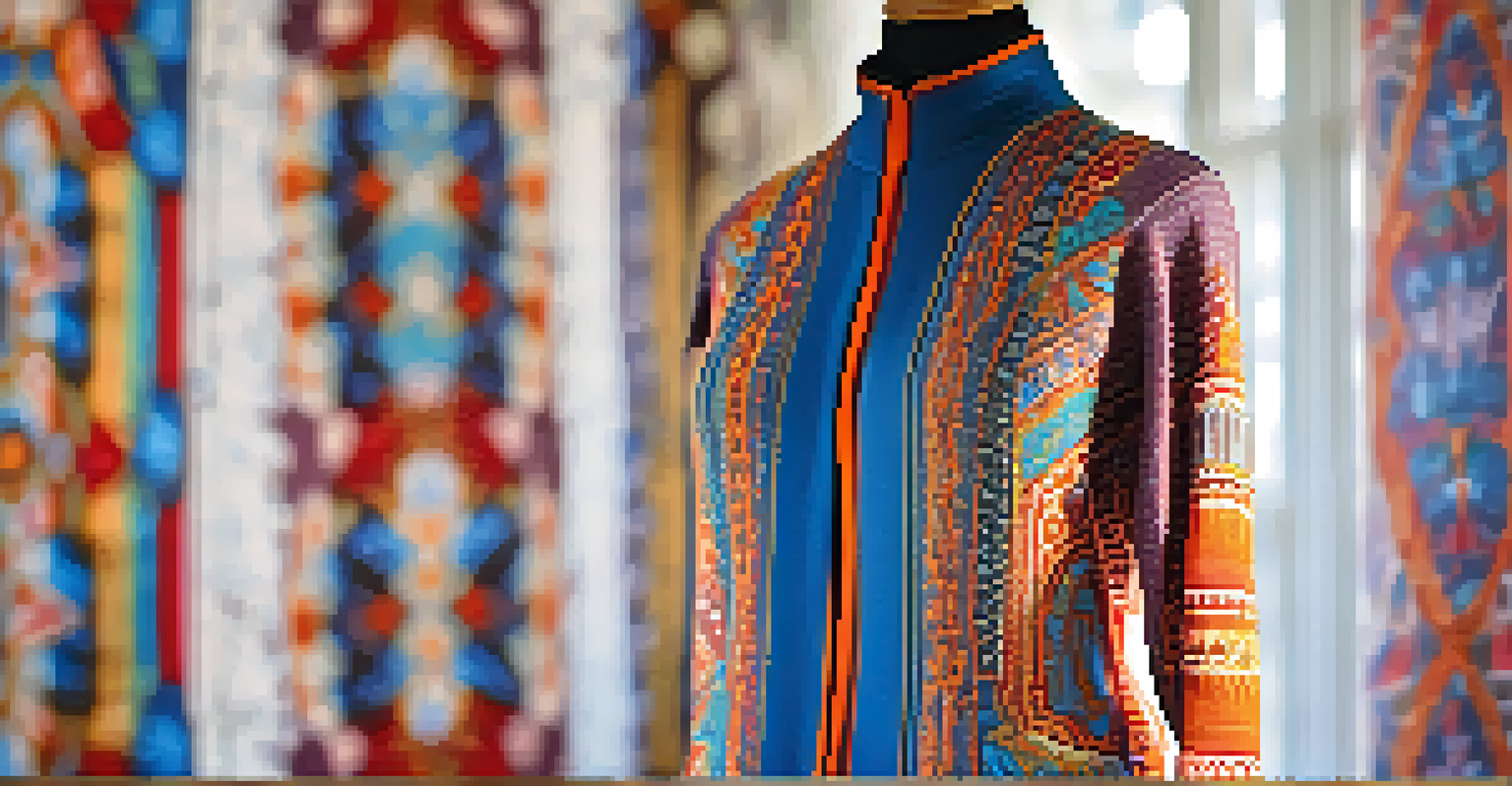Exploring the Rise of Personalized Fashion in Modern Retail

Understanding Personalized Fashion and Its Appeal
Personalized fashion is all about tailoring clothing and accessories to fit the unique tastes and preferences of individual consumers. This trend has gained significant traction in recent years, as shoppers seek not just style but also a sense of identity in what they wear. Imagine walking into a store and finding items that seem like they were made just for you—this is the essence of personalized fashion.
Fashion is the armor to survive the reality of everyday life.
The appeal of personalized fashion lies in its ability to make each customer feel special. With options to customize colors, patterns, or even fits, consumers enjoy a more intimate shopping experience. It's like having a personal stylist without the hefty price tag, making fashion accessible and exciting.
Moreover, this trend resonates deeply with the growing demand for self-expression. In a world where individuality is celebrated, personalized fashion allows people to reflect their personalities through their clothing choices, making shopping not just a transaction, but a creative outlet.
Technology's Role in Shaping Personalized Fashion
Technology has been a game-changer for the rise of personalized fashion. From advanced algorithms that suggest styles based on previous purchases to artificial intelligence that helps create custom designs, tech is at the heart of this evolution. For instance, some online retailers now offer virtual fitting rooms, allowing customers to see how clothes will look on them before making a purchase.

Moreover, data analytics plays a crucial role in understanding customer preferences. By analyzing shopping behaviors and preferences, brands can create collections that resonate with their target audience. This not only enhances customer satisfaction but also boosts sales as consumers find items that truly appeal to them.
Personalized Fashion Enhances Identity
Personalized fashion allows consumers to express their individuality by customizing clothing and accessories that reflect their unique tastes.
Additionally, 3D printing technology is paving the way for on-demand fashion. Imagine ordering a piece that is made just for you, right when you want it. This innovation not only reduces waste but also allows for a level of customization that was once unimaginable, making personalized fashion more attainable.
The Impact of Social Media on Personalized Fashion Trends
Social media has revolutionized how fashion trends are created and shared. Platforms like Instagram and TikTok serve as vibrant marketplaces where influencers showcase personalized styles, encouraging their followers to embrace individuality. This powerful influence has led many brands to prioritize personalized offerings to cater to trends that emerge from these platforms.
Personal style is about being yourself, not a trend follower.
Moreover, user-generated content plays a significant role in shaping personalized fashion. When consumers share their unique outfits online, it inspires others to explore their own styles. This sense of community not only fosters creativity but also drives brands to diversify their offerings to meet the demands of a more discerning audience.
As a result, brands are increasingly engaging with their customers on social media, seeking feedback and co-creating products. This two-way communication not only enhances customer loyalty but also ensures that the products resonate with the latest trends and individual preferences.
Sustainability and Ethical Considerations in Personalized Fashion
As consumers become more aware of the environmental impact of fast fashion, personalized fashion is emerging as a sustainable alternative. By focusing on custom orders, brands can reduce overproduction and waste, allowing for a more responsible approach to fashion. This shift not only benefits the planet but also aligns with the values of many modern consumers.
Moreover, personalized fashion often emphasizes quality over quantity. Shoppers are more likely to invest in a well-made, custom piece that they'll cherish for years rather than impulsively buying numerous fast fashion items that quickly fall apart. This thoughtful consumption reinforces a more sustainable cycle in the fashion industry.
Tech Revolutionizes Fashion Customization
Advancements in technology, such as AI and virtual fitting rooms, are transforming the way consumers engage with personalized fashion.
Additionally, ethical production practices are becoming increasingly important in the realm of personalized fashion. Consumers are looking for brands that prioritize fair labor practices and eco-friendly materials, making it essential for retailers to uphold these standards to earn customer trust.
Challenges Faced by Brands in Offering Personalized Fashion
While the rise of personalized fashion presents exciting opportunities, it also comes with its own set of challenges for brands. One significant hurdle is balancing customization with scalability. Many brands struggle to find efficient ways to produce personalized items without compromising on quality or increasing costs disproportionately.
Another challenge is managing customer expectations. With the promise of personalized items comes the pressure to deliver unique products that meet individual preferences precisely. Brands must invest in customer service and communication to ensure that shoppers feel valued and understood throughout their purchasing journey.
Finally, the integration of technology into personalized fashion can be daunting for smaller retailers. Many lack the resources or expertise to implement advanced technologies, which can create a disparity in the market. Overcoming these challenges is crucial for brands to thrive in the competitive world of personalized fashion.
Future Trends in Personalized Fashion
As we look ahead, the future of personalized fashion seems promising, with several emerging trends likely to shape the landscape. One of the most exciting developments is the continued integration of artificial intelligence in the design process. AI can analyze vast amounts of data to identify emerging trends and consumer preferences, allowing brands to create collections that are both timely and personalized.
Another trend is the rise of virtual reality experiences in fashion retail. Imagine shopping in a virtual store where you can try on clothes in a 3D environment, making the customized experience even more immersive. This technology could redefine how consumers interact with brands and make purchasing decisions.
Sustainability Drives Personalized Choices
As awareness of environmental issues grows, personalized fashion offers a sustainable alternative by focusing on custom orders and ethical production practices.
Furthermore, collaborations between fashion brands and tech companies are expected to grow, resulting in innovative solutions that enhance the personalization process. This synergy can lead to the development of new materials, designs, and shopping experiences that cater to the ever-evolving desires of consumers.
Conclusion: Embracing the Personalized Fashion Revolution
In conclusion, the rise of personalized fashion is transforming modern retail in exciting ways. As technology continues to evolve and consumer preferences shift, brands must adapt to meet the demands for individuality and self-expression. This personalization trend not only enhances the shopping experience but also encourages responsible consumption and sustainability.
For consumers, personalized fashion represents an opportunity to embrace their unique identities and make conscious choices. By investing in custom pieces, shoppers can curate wardrobes that reflect their personal styles and values, moving away from the one-size-fits-all mentality of traditional retail.

Ultimately, the future of fashion lies in personalization. As brands embrace this shift, they can foster deeper connections with their customers while paving the way for a more sustainable and expressive fashion landscape.